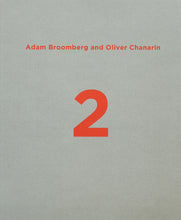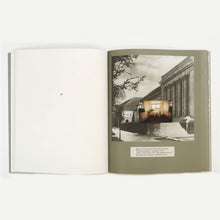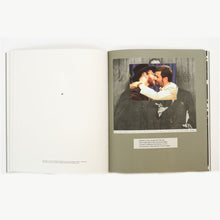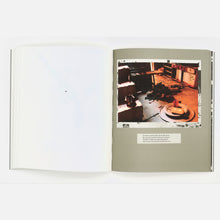Originally released in 2011 as a limited edition hardback, this paperback edition is a facsimile of the book which earned Adam Broomberg and Oliver Chanarin the 2013 Deutsche Börse Photography Prize. War Primer 2 appropriates the first English-language version of Bertolt Brecht’s remarkable 1955 Kriegsfibel in which Brecht combined press photographs from the World Wars with four-line poems. Compiled intermittently over three decades, Brecht’s book was a visual and lyrical attack on war and its propagandists under modern capitalism. Shifting the critique to contemporary narratives perpetuated by the so-called 'War on Terror', Broomberg and Chanarin strategically overlay the pages of Brecht’s War Primerwith images culled from the internet and generated by the actors, propagators and reporters of the contemporary conflict.
Underlying this junction of two visual histories is a profound skepticism of mass media images. War Primer notably drew attention to the didactic role of photojournalism that served war’s callous profiteers. The title deliberately recalled textbooks used to teach primary school children how to read, and the book, which used razor-sharp words to dismantle visual messages, effectively served as a manual, demonstrating how to “read” or “translate” press photographs – images that Brecht referred to as hieroglyphics in need of decoding.
In War Primer 2, Brecht’s pithy poems and choice of 20th-century images – bombed-out cities and battlefronts, Hitler and his henchmen, and wounded soldiers and refugees, among them – take on new implications when shrewdly juxtaposed with digital images and video screenshots of the Twin Towers attacks, torture in the Abu Ghraib jail, the execution of Saddam Hussain, and George W. Bush proudly offering up a Thanksgiving Day Turkey. When the artists' book was first published it raised pertinent questions concerning the historical, political and social currency of mass-media images generated by conflict. Now, in an age of “fake news”, War Primer 2 probes the power of images not only to narrate but also to create history.







